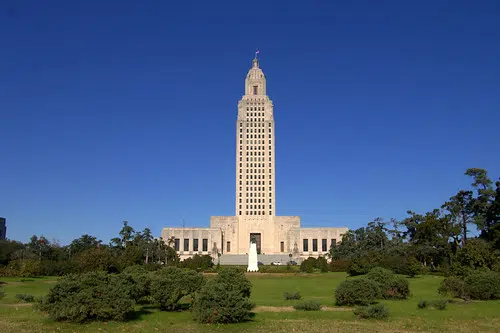NEW ORLEANS (AP) — New state House and Senate boundary lines drawn up by the Louisiana Legislature in 2022 dilute Black voting strength in violation of the U.S. Voting Rights Act, a federal judge in Baton Rouge ruled Thursday.
U.S. District Judge Shelly Dick’s ruling blocked the use of the House and Senate district maps in future elections and gave the state “a reasonable period of time, to be determined by the Court” to draw up new districts. The order comes weeks after the Legislature passed a congressional map with a second majority-Black district, in part as a result of litigation over which she presided.
Dick’s filing noted that the state’s voting-age population is about 33% Black. But only 11 of 39 state Senate districts and 29 of 105 House districts are predominantly Black — less than a third in each case.
In a document accompanying the ruling, she pointed to “illustrative plans” suggested by plaintiffs who challenged the new districts that would increase majority-minority Senate districts to 14 and House districts to 35.
Dick did not order that the plaintiffs’ illustrative plans be adopted, but said the existing districts could not stand, ruling that “the Enacted Maps do not afford an equal opportunity for Black voters to elect preferred candidates.”
New maps could affect a legislative balance of power that now overwhelmingly favors Republicans in a state where the GOP is dominant. New Gov. Jeff Landry is a Republican who regained the top government job for the party after it was held for two terms by a Democrat. Republicans hold more than two-thirds of the seats in each legislative chamber — veto-proof majorities. A new map with more Black districts could dent that majority, as Black voters traditionally have been more likely to favor Democrats.
“This decision sets a powerful precedent for challenging discriminatory redistricting efforts across the nation, confirming that attempts to dilute Black communities’ votes and their power will not be tolerated,” said Megan Keenan, staff attorney with the American Civil Liberties Union’s Voting Rights Project. The ACLU was part of a coalition of voters and organizations that challenged the maps.





Comments